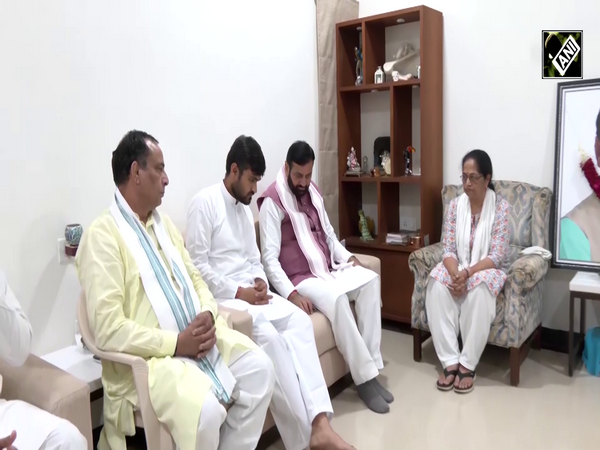
Bar Council stands by foreign law firm policy amid SILF resistance
Jun 19, 2025
New Delhi [India], June 19 : The Bar Council of India (BCI) has initiated a nationwide consultative process led by a high-level expert committee to review feedback on its amended Rules for Registration and Regulation of Foreign Lawyers and Foreign Law Firms in India, 2025.
The move comes amid criticism from the Society of Indian Law Firms (SILF), which the BCI has accused of monopolising access to international legal work and misrepresenting the broader interests of the Indian legal community.
The expert panel, chaired by eminent corporate lawyer Cyril Shroff, includes senior legal figures such as Ajay Bahl, Suhail Nathani, Sandip Bhagat, Mahesh Agarwal, and Amit Kapur. It has been tasked with collecting and incorporating stakeholder suggestions while reaffirming the BCI's commitment to fairness, accountability, and legal sovereignty.
The Bar Council has invited written submissions from law firms, professionals, and the public within 15 days. The points of reference for the consultation are available on the official BCI website, according to the BCI statement issued on Thursday...
The BCI's response targets what it describes as SILF's "obstructionist stance," asserting that the group represents only a small clique of large, established firms and not the majority of India's 90-95% small and mid-sized practices. These emerging firms, the BCI argues, have long been excluded from cross-border legal opportunities due to the gatekeeping and foreign affiliations maintained by SILF's dominant members.
The Bar Council emphasised that its amended 2025 Regulations are designed to democratise access to global legal practice, particularly for young lawyers and underrepresented law firms seeking international exposure.
Contrary to SILF's claims, BCI clarified that foreign law firms are not permitted to practice Indian law, appear before courts or tribunals, or handle litigation-related matters.
The 2025 Regulations, as clarified by the BCI, impose strict boundaries on foreign participation:
• No practice of Indian law in any form is allowed.
• No appearances in Indian courts, tribunals, or quasi-judicial authorities (Rule 8(2)(b)).
• Permitted activities are confined to advisory roles involving foreign law, public/private international law, or international arbitration.
• Prohibited activities include conveyancing, title verification, and legal drafting related to Indian proceedings (Rule 8(2)(c)).
• International arbitration participation is allowed only where disputes involve foreign law or non-Indian parties (Rule 8(2)(e)).
• All foreign firms must first obtain a No Objection Certificate (NOC) from the Government of India (Rule 4(a)).
In a bid to make policymaking more inclusive, BCI has also announced a National Conference of Indian Law Firms to be held in Mumbai in September 2025. The event will provide a platform for nationwide participation, particularly from regional and smaller firms traditionally excluded from SILF's centralised control.
Simultaneously, the BCI is working to create a central registry of law firms and their lawyers, which will eventually enable a democratically elected national body to represent India's legal profession--a contrast to SILF, which the BCI notes has not held internal elections for decades.
The BCI alleged that SILF's core motivation stems from fear of losing its exclusive foreign work pipeline. "Many of these same firms already maintain foreign offices or unofficial tie-ups with foreign law firms," said the Council. "Their opposition is not to foreign entry per se, but to the possibility that foreign clients may choose to engage with newer and smaller Indian firms instead."
BCI has firmly rejected claims that the amended rules compromise India's legal independence. "The Regulations explicitly protect Indian legal sovereignty. No foreign lawyer or firm will be allowed to interpret, argue, or practice Indian law," the statement reads.
Any attempt to circumvent the provisions by Indian or foreign entities will attract regulatory action, including monetary penalties, suspension of registration, disqualification, and possible disciplinary or criminal proceedings, the BCI stated in the statement.
The BCI has reiterated that the Regulations are legally valid, currently in force, and not under abeyance or judicial challenge. They are designed to uplift the entire legal profession, especially young, talented advocates who seek a global presence.
While the Council expressed its openness to genuine concerns, it condemned misinformation campaigns and fear-mongering. "The BCI is committed to reform--not for the few, but for the many," it stated. "The future of Indian law must be inclusive, competitive, and global."























